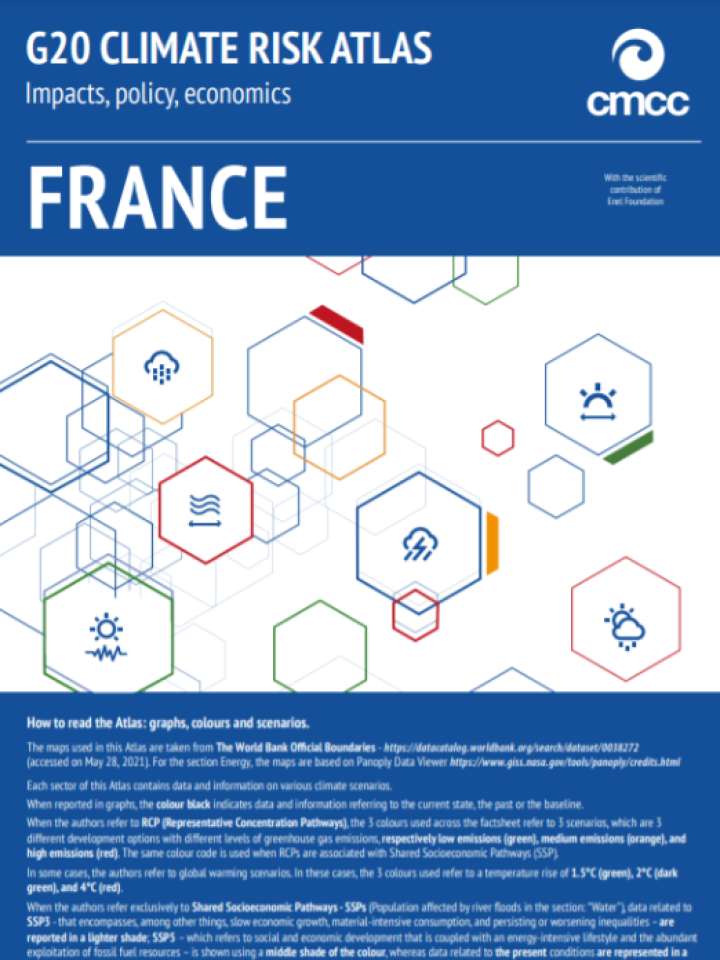G20 Climate Risk Atlas: France
This report summarizes the risks posed on France's climate, ecosystems, food and water systems, and citizens by climate impacts, as well as the country's policies for mitigation, adaptation, and emissions reductions. France features a temperate climate in the European area and a tropical climate overseas. Looking at the European area, the western part has an oceanic climate with average rainfall spread over many days and modest annual temperature variations. The central-eastern areas have a continental climate which harbours cold winters and hot summers. The south-east has a Mediterranean climate which leads to hot and dry summers. France's population face the greatest risks from rising sea levels, floods, and heatwaves. France has committed to a 2050 carbon-neutral target and has done well in keeping emissions low, due to the predominance of nuclear energy in the power sector.
The G20 Climate Risk Atlas represents a science-based tool that can support decision-making processes and the planning of required policies. The simple language, attractive features, and design is intended to ensure that the Atlas lends itself to easy consultation and dissemination, therefore opening the door, not only to decision-makers and stakeholders, but also to the general public, creating a participatory and iterative process which can be used to increase public awareness on climate issues. In the process of a sustainable transition, climate change must be considered the fundamental pillar of the political agenda. Only committed and timely mitigation and adaptation actions can limit the intensification of extreme events, the destruction of ecosystems, infrastructure and populations, and in the process enable people to benefit from a better and more equitable future.
Explore further

